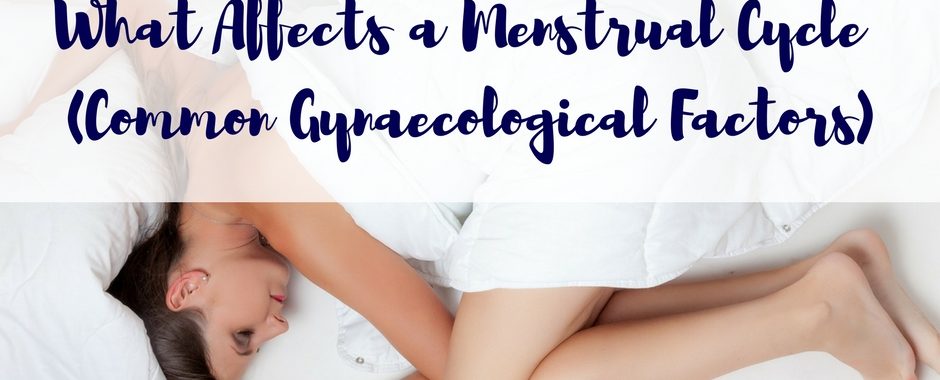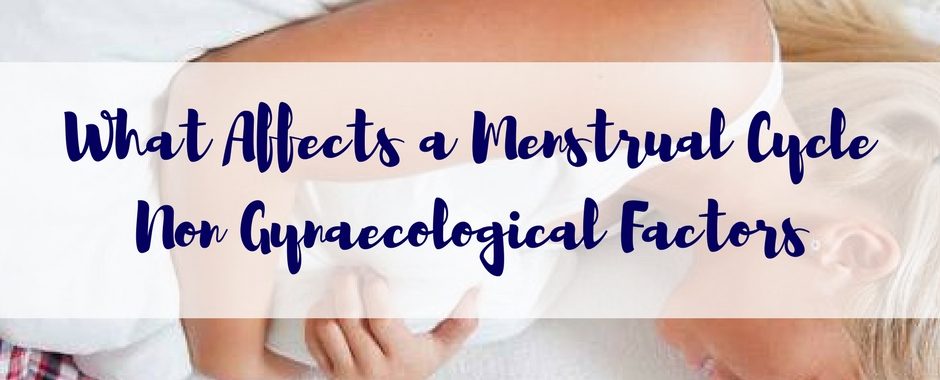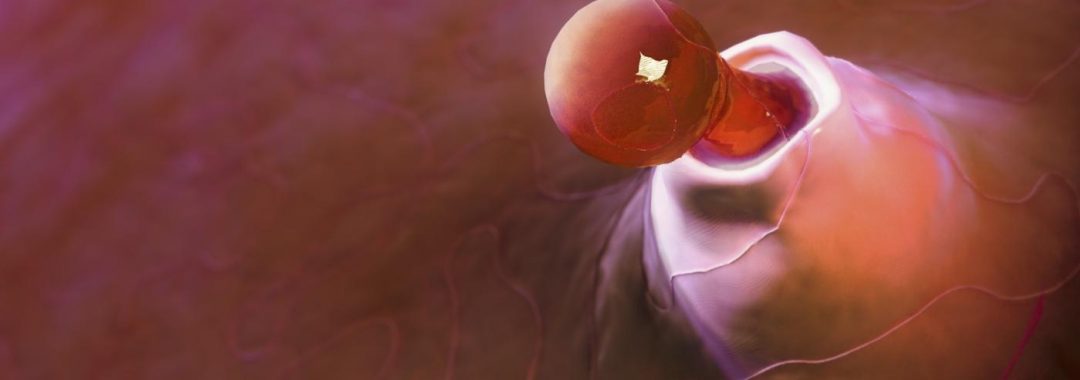Category Archives: Fertility Program
Having More Sex Enhances Positive Relationship Satisfaction
While part of my job is to make sure couples are having enough sex, in order to have babies, part of my education to couples is about maintaining a health and happy relationship too.
Sex and intimacy is a big part of a relationship and it helps couples connect on a much deeper level than just being about the act of pleasure. While that part is nice too, couples still need to learn to connect and share on a much deeper level too.
I always find it sad to see couples who aren’t having sex anymore and are so disconnected. It is also sad to see my fertility couples stop this connection, once the “Job is done” and the baby making is complete.
I always explain that if they cannot connect and maintain that healthy relationship now, how are they going to survive once a baby comes along. It is something that many just don’t think about and often it all becomes about the all consuming goal of “I want a baby”. But at what cost to a relationship?
I do also understand that when couples have been trying so long and there are failures and fertility drugs mixed into the equation, it does become hard. But, you still need to move past that and still find time to connect, otherwise the relationship will die.
I get all the reasons why, but at the end of the day, that lack of connection is a big part of the reason so many couples relationships end. For couples going through fertility issues, there is up to an 80% separation rate and this is often tied back to that lack of physical and emotional connection, through bonding through sexual connection.
A health relationship should be having intimacy and sex at least 1-3 times per week and this helps to promote this deep bonding and connection needed for a relationship to survive.
Regular intimacy and sexual activity can also help promote good physical health and also help with mental and emotional health too. A relationship isn’t all about the sex, but it sure helps make it stronger, as many studies like the one quoted below have shown.
When was the last time you connected on this deep level with your partner?
Might be time for a weekend away, or plan those regular date nights real soon.
Source: Hicks LL, McNulty JK, Meltzer AL et al. Capturing the Interpersonal Implications of Evolved Preferences? Frequency of Sex Shapes Automatic, but Not Explicit, Partner Evaluations. Psychological Science. 2016.
Regards
Andrew Orr
-Leaving No Stone Unturned
-Women’s and Men’s Health Expert
Alcohol Decreases Fertility & Makes Gynaecological Conditions Worse
In today’s modern society, alcohol has become the cornerstone for social engagements, business dinners and after work relaxation. It is important to realise however, that alcohol can directly impact the fertility of both males and females.
In males it can decrease sperm quality, reduce testicular size, decrease libido and cause impotence, all of which can impair fertility.
In females it has a more systemic response, affecting the reproductive hormones, leading to abnormalities in the menstrual cycle and an increased risk of miscarriage.
Effect of Alcohol on Conception for Men
Fecundability refers to the probability of conception during a particular menstrual cycle. It is dependent on the reproductive potential of both partners. Alcohol decreases fecundability by its effect on sperm quality and quantity.
Men who continue to consume alcohol on a regular basis, can decrease their sperm motility, morphology and their DNA in the sperm. All of which are important factors in achieving fertility. While outwardly a man’s sperm may look OK, many forget that inwardly, the sperm DNA could be highly fragmented and unless this is tested every ejaculation, you will have no idea how bad the sperm actually is.
A one off DNA fragmentation analysis does not mean the sperm each time is OK. It only measures the sperm from the ejaculate that was tested and sperm quality can change by as much as 20% each ejaculation.
Testicular size is also affected by alcohol intake; and can also affect sperm production. Alcohol is a depressant of the central nervous system (CNS), and can disrupt the autonomic system of the CNS. These effects are temporary and short lived. Abnormal sperm production is also temporary and also can resume after abstaining from alcohol.
One study, this one looking at couples going through IVF treatment, found that for every additional drink a man consumed per day, the risk of conception not leading to a live birth increased by 2 to 8 times. This was especially true if the drinking occurred within a month of the IVF treatment.
Effect of Alcohol on Conception for Women
In women, alcohol affects fecundability, by disrupting the delicate balance of the menstrual cycle. Clinical research data published in the “British Medical Journal” suggests that women, who drank socially, 1-5 drinks per week, were at a greater risk of decreased fecundability when compared to women who remained abstinent. These findings underscore the importance of remaining abstinent while attempting to conceive.
Alcohol disrupts the hormonal imbalance of the female reproductive system, leading to menstrual irregularities, and even Anovulatory cycles, (menstrual cycles where ovulation fails to occur).
Menstrual pain can directly be linked to the amount of alcohol consumed in the lead up to the menses and consumptions of alcohol, even small amounts, exacerbates most gynaecological conditions. These changes can drastically decrease a woman’s chance of becoming pregnant and thus affect fertility.
Alcohol effects fertility in both partners, and can do so in so many ways. For couples who desire to have a baby, it is best to stay away from drinking completely. Presently there is no safe limit of alcohol intake; even socially acceptable amounts of alcohol can affect fertility potential and outcomes.
Moderate drinking (1-2 drinks in one sitting) is probably okay, especially if you reserve those drinks to a few times a week, instead of daily. However, if you’re going through IVF treatment, or trying to conceive naturally, you might consider cutting out alcohol for the time being.
Trying to conceive is a special time in a couple’s life, it should be filled with love, devotion and safe health practices, which means a healthy diet and lifestyle and having a healthy mind too.
A healthy preconception care program is also a great idea for those trying to increase their fertility and get their reproductive systems working better. Healthy eggs and health sperm make healthy babies. Healthy reproductive systems also mean better menstrual cycles and better testicular health too.
If you would like to book in a consultation with me, or find out more about my fertility program, please call my friendly staff, or using the automated emails system on the website.
You can also make a meet and greet appointment to find out more about the how I can help and assist you and found out about the fertility program too.
Regards
Andrew Orr
-Leaving No Stone Unturned
-Women’s and Men’s Health Advocate
-The International Fertility Experts
Endometriosis Awareness- Ending The Silence
My main aim is to bring awareness about Endometriosis also end the silence for sufferers of this disease that is often overlooked and often ‘missed’ and ‘dismissed’. It is an issue myself as an Endometriosis Expert feels very passionately about.
I help and care for women suffering from this disease every day and I hope that one day, endometriosis can be a word of the past. There is no cure for this disease, but we need to find one.
Through awareness and education, let’s try and get women the early intervention and help they need sooner, rather than later.
What is Endometriosis
Endometriosis, which is an inflammatory gynaecological disease, by which endometrial like tissue grows outside the endometrium. It can spread outside the endometrium into the pelvis, bowel and intestines. It has even been known to get into the brain, joints and around the heart.This disease affects 1 in 10 women, often causing immense pain for them.
According to the Royal College of Obstetricians and Gynaecologist Guidelines for the Management of Endometriosis, it can cause the following symptoms:
Heavy Menstrual Bleeding
Period Pain
Pain with sex
Ovulation Pain
Irritable bowel like symptoms
Bladder issues
Chronic fatigue
Pain with bowel movement
The disease can also cause other symptoms such as :
Bloated belly that looks pregnant around your period (known as endo belly)
Bloated belly that looks pregnant and you are told it is from certain foods, but it isn’t, or may be a combination of food and inflammation from endometriosis (also known as endo belly)
UTI like symptoms that aren’t a UTI
Bleeding from the bowel with your period
Low Iron with no explanation
Being told you have IBS, but you don’t have IBS
Migraines/Headaches that are worse around your period
Irrational mood swings
There are so many other symptoms that could also be pointers to endometriosis.
This disease can also play major havoc with hormones and the libido. Many women with can have pain on intercourse which further lessens the desire around sex.
Women with endometriosis often have painful periods and can’t get out of bed, so if you experience this, there is a good chance that you actually have it.
Women with endometriosis can also have other hormonal disturbances such as mood swings, fatigue, restlessness etc. They can also have other symptoms such as migraines, headaches, dizziness, constipation, pain with bowel movements, joint pains and all manner of symptoms created from the inflammation that endometriosis is caused by and also creates
How Many Women Suffer from Endometriosis?
Endometriosis has now reached an all time high in its ever-growing presence. While the current research says that 1 in 10 women are affected by endometriosis, as an endometriosis expert, I believe, as do many others, that these figures may be grossly under exaggerated.
Research also shows that a significant portion of women affected with endometriosis are asymptomatic (no symptoms) and may only ever get diagnosed if they are having issues with having a baby, or they may never be diagnosed at all. In addition to this, many women diagnosed with Irritable Bowel Syndrome actually have endometriosis and not IBS.
Many women have also been told period pain is normal and hence many never seek help for a condition that can be debilitating on their life and those around them. Women who suffer period pain and other menstrual related symptoms caused by endometriosis are often ‘missed’ and ‘dismissed’ by multiple healthcare professionals and it can take up to 12 years from onset of symptoms to a definitive diagnosis being made.
Women with period pain caused by endometriosis have to live a life of pain, trauma and physical and emotional torment. Many of these women are barely getting through a day, let alone a whole month of exhausting symptoms related to this disease. Some sadly even turn to suicide.
The Western Medicine Approach on the Causation and Treatment of Endometriosis
To date, Western medicine does not know how or even why endometriosis occurs. New research is showing that the disease is a genetic disease that is hereditary.
The only solution that has been offered in the past was to laser it. This usually has a recurrence rate of up to 80%.
The proper way that this disease should be removed is by excising it (cutting it out), which offers better relief with less recurrence.
I do need to stress that when a surgeon is needed, it needs to be done by an advanced trained laparoscopic surgeon, who has had extra specialised training, and is an expert in endometriosis excision and management, and is not just any obstetrician/gynaecologist (OB/GYN). This is where many go wrong and haven’t had the disease dealt with properly.
Despite the increased success in treating endometriosis through a surgical procedure, it still usually reoccurs in a majority of women. There is no cure for endometriosis. To find out more about the facts about endometriosis please click on the link- The Facts About Endometriosis
So why isn’t the medical option alone working?
Primarily it is because they are just treating the symptoms and not the cause. You can take away most physical symptoms very easily, but if the real cause isn’t addressed at the same time, you have no chance of a full recovery. This includes emotional factors.
In addition, many of the hormones that women are put on after surgery, mask the problem and can actually make it worse. By actually stopping the the normal menses, like many of these hormones do, there can be increased risk of further endometriosis growing. Sure, while you have no period, you may have no pain or symptoms, but internally it is still there waiting to flare up again.
Oral contraceptive pills containing estrogen should be avoided as they only add to making the problem worse. Progesterone only options should be looked at rather than a combined pill, if using hormones. These treatments also have limitations that include side effects in some women and contraceptive action for women desiring to conceive.
The Traditional Chinese Medicine Approach on the Causation & Treatment of Endometriosis
Firstly, I can only pass on what the Chinese have known and studied for 10,000 or more years, much longer than western medicine. They had the body and its internal organs mapped out longer before medical science in the west did.
In Chinese Medicine, they believe the liver governs the menstrual cycle, and that it also governs our emotions.They believe that through poor diet, lifestyle, medicines, environment etc, that these can then cause disruption to an organ in the body. Emotions such as anger, frustration, resentment, stress, irritability etc, are believed to cause the liver to be in disharmony.
In Western Medicine terms, we know that poor diet and emotional factors can unlock predisposed hereditary issues, or dispositions through DNA recoding. Yes, diet can affect your DNA coding and so can emotional issues. Similarly we can reverse some disease states, and reprogram DNA coding through a healthy diet and fixing our emotional health.
When the liver is in disharmony, Chinese medicine believes it can cause blockages in our system. Western medicine now also believes that emotions can cause physical symptoms and we often see this is psychiatric, or body-mind medicine. These blockages then cause what we call stagnation.
Chinese medicine believes that when the Qi (energy) becomes stagnant, it causes what they call Liver Qi Stagnation, and this is the cause of many gynaecological conditions such as endometriosis and PMS.
Chinese Medicine believes that when Qi stagnation is left long term, it then affects the blood and turns it stagnant too. Imagine damming a river and the longer the water sits, the more stagnant it becomes because it no longer flows. This is where the term “Blood Stagnation” comes from and what Chinese Medicine believe endometriosis is manifested from.
When we look at endometriosis, it does present as blood clotting and pain. Basically it is like a varicose vein that has all that old, stagnant blood in it. The circulation is no longer moving and the blood now turns dark and causes pain.
Chinese medicine believes that not only is diet and herbal medicine needed to move the stagnant blood and help prevent the disease further expressing itself, but also believes that the emotional component behind it also needs to be addressed.
In Chinese medicine they use lots of warming and blood thinning herbs that are also anti-coagulants, but are also anti-spasmotics. The Chinese medicine also has herbs to help the liver function and also help with emotional wellbeing.
Dr Andrew Orr’s Recommended Approach to Treating Endometriosis
Endometriosis has a highly variable disease state, and thus a multi-modality approach is needed to treat it. Targeting different pathways is likely to be important to move toward precision health (personalised medicine) in endometriosis. People with endometriosis need a team of people looking after them, not just one person and one approach.
For severe cases you will need to see a good advanced laparoscopic surgeon to get as much of the endometriosis excised (cut out-not lasered). Surgery is a much needed option if the pain is severe because it helps removed the deposits (lesions) of the endometriosis that can be seen.
However, it does not deal with the microscopic implants of endometriosis that can’t be seen, and this is why endometriosis is likely to occur again. We do know that despite the best medical interventions that women who have endometriosis can still be in pain and endure the terrible associated symptoms of the disease as well.
Acupuncture and Chinese Medicine may be able to assist with endometriosis and the associated symptoms of this disease . There is now some good anecdotal evidence to suggest that Acupuncture and Chinese herbal medicine may assist with the causes of period pain. This should be done along side medical treatments as well.
To support my view on the treatment of endometriosis, the Royal College of Obstetricians and Gynaecologists guidelines for treating endometriosis now states that Acupuncture and Chinese Herbal Medicine may assist in the management of endometriosis and should be considered.
Following the correct diet and restoring good gut bacteria and gut health (the microbiome) may also help with inflammation and the associated gut related symptoms of endometriosis.
The modern Western diet consists of many foods with high GI levels, causing inflammation to the body and therefore fuelling conditions such as endometriosis. There are all sorts of diets out there attesting to be the cure for endometriosis, but half are them are actually making it worse. A low GI /Low inflammatory based diet may help with assisting the treatment and management of endometriosis and its associated symptoms.
Lastly, see a good counsellor. Different modalities may help both the physical & emotional side of many disease states, but sometimes solution-based talk therapy is needed for the best results.
I provide patients with a list of preferred counsellors and psychologists when I see them for their initial consultation. I always look at the emotional side of everyones health and wellbeing.
A multi modality approach does help, but for anything to work more effectively, you too, have to make a commitment. It is also about finding your team and the team of people right for you too.
Who I am and Why this Means so Much to Me
I am a healthcare practitioner with over 20 years of experience in assisting Women’s Health Medicine and helping women with care and managing endometriosis and its associated symptoms. I know all too well the trials and tribulations women have to go through before someone actually listens and gives these poor women a proper diagnosis.
I also have loved ones with this disease and have also lived with a chronic painful disease too. While I may not fully understand and feel what women with endometriosis actually goes through, I do know what it is like to live daily life with a painful chronic inflammatory disease that can rule your life on every level.
The one thing I do want all women to know is that “Period pain IS NOT normal” and all too often women are told that period pain is normal. Nothing could be further from the truth. We need to educate women and young girls that period pain is not normal.
I have a motto of “Leaving No Stone Left Unturned” and I apply this to every patient I see with period pain, and those potentially suffering from endometriosis.
I would like to see better education and awareness for the general public, but I would also like better education and awareness for healthcare professionals. I would like to see all healthcare professional use my motto and make sure that no woman is ever ‘missed’, or ‘dismissed’ with this horrible disease ever again.
I would like to conclude with one last message. Women need to know that period pain IS NOT normal and that early detection and early intervention and treatment is the key to treating any disease properly. The earlier a woman is investigated and the disease is detected and managed properly, the better her future health and fertility outcomes are.
Please do not think that teenage girls are too young to have endometriosis. Early intervention and early treatment and management of this disease is crucial.
Lets end the silence about this horrible disease. Please support Endometriosis Awareness and support anyone bringing awareness and education about this disease that so many women now have.
If you would like to book in a consultation with me, please call my friendly staff, or using the automated emails system on the website. Let me hold your hand and care for you and assist you in every step of the way to better health and a better way to live daily.
Regards
Andrew Orr
-Women’s and Men’s Health Advocate
“Leaving no Stone Unturned”
“Period Pain IS NOT normal”
What Affects a Menstrual Cycle – Part 2 (Common Gynaecological Factors)
There are many things that can cause disturbances to a woman’s menstrual cycle and on my previous post I discussed how Non-Gynaecological factors, such as diet, lifestyle etc, can be contributing.
In this post I will discuss some of the common gynaecological conditions that can cause problems with women’s menstrual cycles.
The sad thing is that many of these are often overlooked and often masked by putting women on the contraception pill. The other issue is that many are led to believe that the pill is the answer to their issues, when sadly it isn’t.
Many of these common gynaecological conditions continue to become worse while having their symptoms masked and exacerbated by these hormones.
Even more disturbing is that many women are not heard when speaking about menstrual issues, menstrual pain and other factors that do in fact interfere with their daily life on both a physical and emotional level.
Lets look at the common gynaecological factors that can affect a woman’s cycle.
- Endometriosis – is one of the most common causes of period pain and it caused by abnormal growth of endometrial cells both inside the uterus and outside the uterine lining. The exact cause is not known.While period pain, clotting, ovulation pain, pain with sex, pain on bowel movement, IBS like symptoms etc are commonly talked about, many women with endometriosis are asymptomatic and would not even know they had it.It is commonly missed, misdiagnosed and overlooked by healthcare practitioners and is why it often takes up to 10 years for the definitive diagnosis to be made. There is no cure and now it is thought that genetic factors and parental mode of inheritance is a predominant part of this disease. We do know that estrogens drive the disease and make it worse also.
Endometriosis can only be diagnosed by surgical intervention. For more information please read my posts on endometriosis and also visit the Endometriosis Australia website.
- PCO/PCOS – Polycystic Ovaries/Polycystic Ovarian Syndrome is one of the most common caused of menstrual cycle irregularities, or ceasing of the menstrual cycle.It is mainly caused by insulin resistance and it also runs in families. There are two types of presentation with this condition. One is just having the cysts on the ovaries and the other is just the syndrome without the cysts.These days it is common lobbed under the one condition called PCOS.Along with menstrual cycle disturbances, it can also cause mood swings, hair growth/hair loss, acne, ovulation pain, infertility, anovulation, weight gain/weight loss, pot belly, fluid retention and much more.
Diet and lifestyle changes are the number one treatment for this condition. Scans can pick this condition up, but can also miss it too.
It can be diagnosed via surgical intervention and sometimes-extreme forms of this do need surgical intervention known as “Ovarian Drilling”
- Fibroids – Also known as myomas are benign growths that can occur inside and outside the uterus. Up to 40% of women over 40 years old have fibroids.They can cause problems with irregular uterine bleeding, heavy long bleeding, bleeding in between cycles, anaemia, pain with sex, problems with urinating and back pain.They can also cause infertility and miscarriage.There are 3 types of fibroids (intramural, submucosal & subserosal). They are thought to be caused by excess estrogens and problems in hormone metabolism.
They can be removed surgically and some small ones embolised.
- Polyps – Are benign overgrowths, or bulges, of the normal tissue lining the uterus into the uterine cavity.They can cause irregular bleeding, heavy bleeding, bleeding after intercourse and infertility. Some women have not symptoms at all.Polyps may also be found in the uterine cervix. Polyps are usually attached to the underlying tissue by a base or stalk, and they vary in size.They can basically act like an IUD and stop implantation and therefore need to be removed in order for a woman to fall pregnant.
Polyps only rarely contain cancerous cells
- Adenomyosis– Is very similar to endometriosis by the fact that it causes pain, irregular bleeding, heavy bleeding, bloating, lower abdomen pain and can affect the day to day functioning of woman all over this world.Adenomyosis growth penetrates deeply into the uterine lining and also inflames the nerves inside the lining. It cannot be seen visually and some special high contrast scans and MRI can pick it up, but not always.Usually a biopsy is needed to diagnose it. Medically the only way to properly get rid of Adenomyosis is via a hysterectomy.In the meantime, mostly anti-inflammatories, some hormones and other forms of pain management are given to provide symptomatic relief.
- Thrush– Vaginal thrush is a common infection caused by an overgrowth of Candida albicans yeast.This yeast lives naturally in the bowel and in small numbers in the vagina. It is mostly harmless, but symptoms can develop if yeast numbers increase.Symptoms you may experience if you develop vaginal thrush include vaginal discomfort – itching or burning, a thick, white discharge with a ‘cottage cheese’ appearance and yeasty smell, redness or swelling of the vagina or vulva, stinging or burning while urinating or during sex, splits in the genital skin that can cause bleeding and irritation.The condition is mainly treated with antifungal creams, pessaries and probiotics.
- Cancers – In 2008, a total of 4,534 new gynaecological cancers were diagnosed in Australia; this equates to an average of 12 females being diagnosed with this disease every day.On average 4 females in Australia die each day from a gynaecological cancer each day.The most commonly diagnosed gynaecological cancers are uterine cancer, ovarian cancer, cervical cancer, vulval cancer, cancers of other female organ and placenta and vaginal cancer.All can cause irregular bleeding, but some may not present with any symptoms at all.
Proper diagnosis and early intervention is the key to any gynaecological cancers. For more information on diagnosis, symptoms and treatment please refer to the cancer council website.
There are other conditions that I haven’t discussed because of focusing on the main gynaecological conditions that can affect a woman’s cycle. I haven’t gone into the treatments of these disease states and will go into this at a later date.
What I will say it that early intervention is the key to any disease state in the body and seeing the right people is paramount too. Please know that many of these disease states will require a multimodality approach and please remember that there is always help out there.
Never put up with period pain, or menstrual irregularities, or be told the symptoms many women face daily are normal. The value of a second, or third, or tenth opinion is crucial for some people to get help and to find the right person to help.
Please remember that period pain IS NOT normal and neither are many of the menstrual irregularities that many of you face daily. There are always treatments and help out there too.
Take care
Regards
Andrew Orr
-Leaving No Stone Left Unturned
-Women’s and Men’s Health Crusader
What Affects a Menstrual Cycle – Part 1 (Non Gynaecological Factors)
After my post on “What a Proper Menstrual Cycle Should Be Like”, I always have lots of people asking what the cause of their menstrual irregularities are.
Most of the causes can be broken into two causes being:
Non Gynaecological Factors– Meaning things you do, or may have done to exacerbate current conditions, or throw your cycles out of balance
Gynaecological Factors– Disease states such as Endometriosis, PCOS, Fibroids, Polyps, Adenomyosis, Cancers and other causes.
I’ll talk about the factors (Non-Gynaecological Factors) in people’s control so that they may be able to identify some of those things they may be doing on a daily basis to exacerbate current underlying issues, or just interfere with their hormones and lead to problems with their menstrual cycle.
These ones you can work on and be aware of in case your cycle isn’t regular, or your pain is worse in a month. This way you can look back and go “Oh….. Now I know why my cycles wasn’t so good this month”
I’ll talk about the Gynaecological Causes of irregular, or painful cycles in my next post. For now here are the Non-Gynaecological causes.
What Affects a Menstrual Cycle- Non-Gynaecological Factors.
- Poor diet – Foods such as high sugars and junk foods all cause inflammation in the body and lead to hormonal irregularities and can exacerbate, or cause pain with the menses
- Alcohol – Most alcohols contain high sugars and they also cause inflammation in the body. It also interferes with your hormones and affects the liver too. In Traditional Chinese medicine, it is believed the Liver governs the menstrual cycle and the Live also controls the emotions. Excess alcohol leads to SOL ( Shit on Liver) and thus the moods and cycle get affected.
- Poor Sleep– Sleep deprivation leads to reduction in hormones such as melatonin, which is a precursor to serotonin and then effect the moods etc. Lack of sleep also interferes with the other hormones in our body too. Lack of sleep also stops the body from repairing and can lead to other health issues. We know that shift works do have a lot more disturbances with their cycles and also have lower fertility rates.
- Trauma – Things such as surgery, a virus, cold/flu etc, or where the body has to repair, can lead to menstrual irregularities. The body shuts down the menses so that it can repair itself first. Emotional trauma can also cause the menses to shut down, or become irregular too.
- Weight gain, or weight loss– It is a well known fact that many athletes do not get a menstrual cycle because of lack of body fat. The same goes for people who are over-weight too. Eating disorders can also cause irregularities and infertility. Too much or too little body fat interferes with your fertility. All your hormones are made from fats and protein.
- Emotional Issues– Bottled up emotions such as anger & frustration cause blockages in the system & then cause pain. Emotional issues also cause problems with hormones. Emotions and stress are a major cause of menstrual irregularities. Bottled up emotions can cause SOL too ☺
- Drugs/Hormones– Both pharmaceutical and recreational drugs can also cause menstrual irregularities and can stop the menses completely. Recreational drugs can also lead to permanent infertility.
- Travel– Travelling over time lines and even just interstate can cause issues with your cycle too. The body has to cope with adjusting to different times zones, different foods and water etc and the pressures from flying can also throw the cycle out.
Hope this help explain a little bit more about how our diets and lifestyle can affect your cycles each month too.
If you would like to book in a consultation with me, please call my friendly staff, or using the automated emails system on the website.
There are options for online consultation for those that are interstate, not local, or those that live overseas. My friendly staff will be able to sort this out for you.
Next I will talk about the gynaecological conditions which can causes issues with your cycle. Stay tuned 🙂
Take care
Regards
Andrew Orr
-“Leaving No Stone Unturned”
-Women’s and Men’s Health Advocate
-The Endometriosis and PCOS Experts
You May Ovulater
The traditional theory that women have the potential to ovulate at one time in the month (being around day 14) is actually been proven to be wrong and is something many have known for a long time
This research was first published back in 2000 in the British medical journal and then research, published in the journal Fertility and Sterility in 2003(2003;80: 116-22 [PubMed]) could explain why the “rhythm” method of contraception is so unreliable and why women who take hormonal contraceptives sometimes become pregnant.
Researchers from these studies did daily ultrasound scans on women who apparently had normal menstrual cycles. Some were nulliparous; others had had up to three children. They found that all of the women produced at least two and sometimes 3 major waves of follicular development.
The existing theory held that at the beginning of each menstrual cycle, 15 to 20 follicles begin to grow in the ovaries and that one of them develops into a mature egg at roughly the middle of the cycle. The research showed that 40% of the subjects had the clear biological potential to produce more than one egg in a single month. Moreover, they could be fertile at any time of the month.
“These studies have actually caused the rewriting of the human reproduction textbooks” The leading researchers have explained. “It explains why natural family planning often doesn’t work, why hormonal contraception sometimes fails, and why we see fraternal twins with different conception dates.” The studies have also helped to improve assisted reproduction success rates too and why we see some women ovulate again (as part of their natural cycle) after hormone induced ovulation.
Research published back in 2000 that was published in the British medical Journal also showed that “Ovulation – Fertile days are unpredictable”
The timing of the fertile window is highly variable and to assume that ovulation occurs on day 14 or between day 10 and day 17 is based on outdated information.
Fertile days are unpredictable, and can fall anytime during the menstrual cycle-even for those women with regular Cycles. There is only a 10% probability of being fertile in the fertile window (day 10-17) as identified by Clinical guidelines and more than 70% are in the fertile window before day 10 or after day 17 of their cycle.
There is also a 1-6 % chance of being fertile during a menstrual phase of the cycle. (British medical Journal 2000 321:1259-1292)
This is why couples need to be having regular sex in a cycle, if they want to conceive and that they need to stop just trying in the so called old school thinking of the “Fertility Window” as identified as day 14, or between day 10 to day 17 of the cycle.
Like anything in life, if something isn’t working, then you need to change what you are doing. If that doesn’t help, then you need to get help from a professional.
I have helped over 12,500 babies into the world and this is part of what I teach my couples and part of my multimodality fertility program.
If you are having trouble having a baby, then call my staff and find out more about my fertility program and how we may be able to assist you in having your little miracle.
Take care
Regards
Andrew Orr
-No Stone Left Unturned
-Women & Men’s Health Crusader
-The International Fertility Experts








